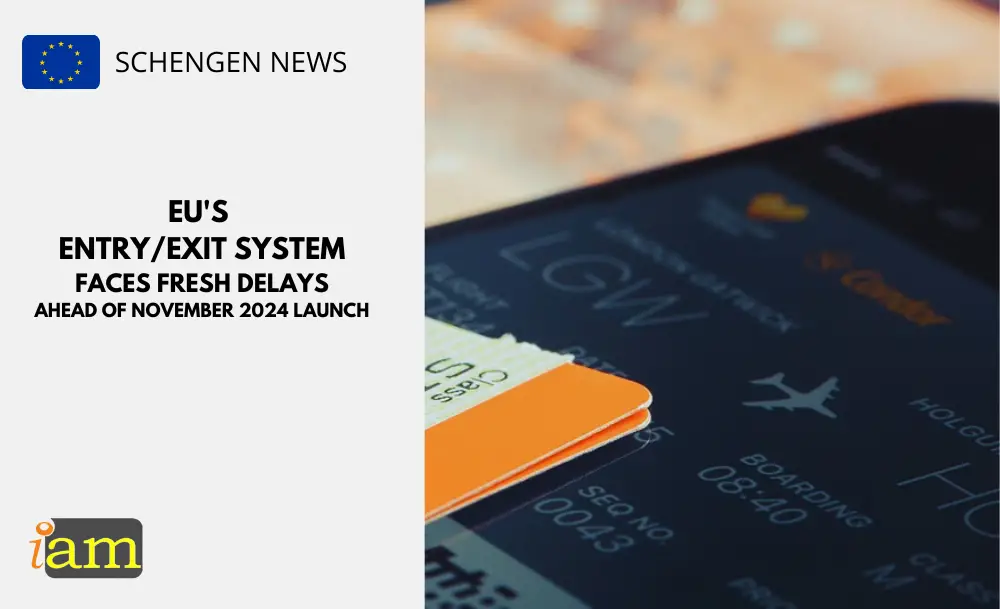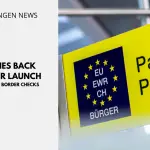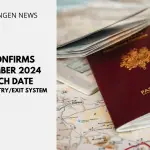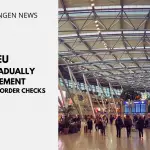EU’s Entry/Exit System Faces Fresh Delays Ahead of November 2024 Launch

The European Union’s much-anticipated Entry-Exit System (EES), which aims to revolutionise the way non-EU travellers enter and exit its borders, is once again under scrutiny as doubts grow over its readiness for the November 10 launch.
EES, a cutting-edge biometric system designed to streamline border crossings, will use digital photographs and fingerprints to register travellers from non-EU countries, including the UK, upon entering and exiting the EU. This system will apply to both short-stay visa holders and those who travel without a visa.
However, fresh reports suggest that some EU member states, notably France, Germany, and the Netherlands, are raising red flags. According to a report by The Guardian, these countries have expressed serious concerns about whether they can be fully prepared in time. While the three countries are supportive of the travel scheme, the lack of time to test the EES has been causing concerns and can potentially jeopardise the scheduled launch.
Adding to the uncertainty, UK transport operators have been tipped off by government sources to brace for yet another delay. While the EES has already experienced multiple postponements in recent years, EU Home Affairs Commissioner Ylva Johansson made waves last month by confidently announcing the November start date following her visit to the EU’s IT agency, eu-LISA.
Despite Johansson’s optimism, she acknowledged that bringing the system online has involved intense dialogue with member states and stakeholders. “When the EES is operational, we’ll say goodbye to passport stamps and hello to streamlined digital checks for all non-EU travellers,” Johansson remarked, painting a picture of a modernised border control system. “Every airport, every harbour, every road into Europe will be synchronised in real-time for faster, smoother travel.”
Digital Borders: The Future of Travel in Europe?
The EES marks the EU’s first major leap towards fully digitised borders and is a critical prelude to the European Travel Information and Authorisation System (ETIAS), which is expected to go live in mid-2025. ETIAS will require travellers from 60 visa-exempt countries, including the UK, to apply for a travel authorization before visiting Europe. The cost for ETIAS will be a modest €7 for travellers aged 18 to 70, with a validity of three years.
Similarly, the UK is gearing up to launch its own Electronic Travel Authorisation (ETA) system, set to roll out by April 2025, for visitors who currently don’t require a visa. Both systems aim to improve security and streamline travel, but the countdown to their implementation has left both travellers and member states on edge.
As the clock ticks towards the November deadline, the big question remains: will the EU be ready? With several key countries sounding alarms, it remains to be seen whether the EES will debut on time, or if further delays will frustrate both travellers and officials alike. Either way, the shift towards digital borders is inevitable – it’s just a matter of when the EU can confidently flip the switch.
Do you need to renew your passport? Talk to us in the comment section below. Or if you need more advice on the above, contact us for further travel & immigration advice.
Check out the deals we have found below and tell us your travel plans.
Check out the offers and discounts from:
And because of the pandemic, don’t forget to get your travel insurance, which will cover you for flight disruptions and pandemic related matters.
IaM can help with your visa application to Europe, the United States, the UK & other countries
If you need help with a US visa, a UK Visa, or a visa to Europe, including help with appointment booking obligations, IaM can help. For more information and advice on US immigration, UK immigration law and US visa applications or if you need any help or assistance please, reach out to your Visa Coordinator at IaM.
Some of our posts include affiliate links. If you choose to purchase any of these products, we might get a small commission. For more information, check out our TOS.
- UK May Tighten Visa Rules for Some Nationalities - 7 May 2025
- Romania Off US Visa-Free List - 6 May 2025
- UK Fiancé Visa Made Simple: Requirements, Process & Tips - 5 May 2025









